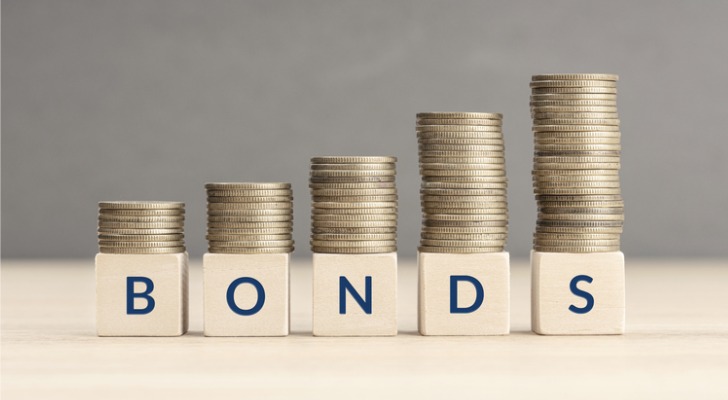Corporate bonds, which are a type of debt security, function as a tool for corporations to raise capital. A high-yield corporate bond offers higher interest rates than a typical corporate bond because it carries a higher risk of default. The “high yield” refers to the greater interest or coupon rate that investors receive as compensation for the additional risk they undertake. These bonds are often issued by corporations with lower credit ratings, as they have to offer higher yields to attract investors.
Consider working with a financial advisor if you’re trying to decide how a high-yield corporate bond could fit into your investment plans.
How High-Yield Corporate Bonds Work
Corporations with lower credit ratings issue bonds, attracting investors with the promise of higher periodic interest payments. When investors purchase these bonds, they essentially become creditors of the corporation.
The corporation pays the investors a set amount of interest, known as the “yield,” at regular intervals and returns the principal when the bond matures. The principal amount is repaid on the maturity date, marking the end of the bond’s life cycle. The yield of high-yield bonds is influenced by several factors.
These include the creditworthiness of the issuer, current market interest rates, and the overall economic conditions. Therefore, investors must keep a close eye on these factors while considering an investment in high-yield corporate bonds.
Benefits of Investing in High-Yield Corporate Bonds
One of the primary benefits of investing in high-yield corporate bonds is the potential for high returns. Due to the higher level of risk associated with these bonds, they can provide higher returns compared to other investment-grade bonds. This makes them an attractive option for investors seeking to maximize their returns.
In addition, high-yield corporate bonds can serve as a tool for diversification. By including these bonds in an investment portfolio, investors can achieve better diversification, spreading the risk among different types of investments. This could potentially contribute to better portfolio performance over time.
Risks of High-Yield Corporate Bonds

Investing in high-yield corporate bonds is not without risks. The risks that you should be aware of before making your decision to invest are:
- Liquidity risk: This refers to the ease you’ll have if you want to sell your investment.
- Default risk: This is the risk that you won’t get your money back because the corporation won’t be able to pay.
- Interest rate risk: When interest rates rise, your price of your investment is at risk because the market value of these bonds declines. Bond prices and interest rates move in opposite directions.
- Economic risk: When the economy starts to decline then large numbers of investors might dump their corporate bonds and replace them with safer options.
If none of these risks worry you about your own portfolio then a high-yield corporate bond might be an excellent investment choice for you.
How to Invest in High-Yield Corporate Bonds
To invest in high-yield corporate bonds, one must first research potential investments, assessing the creditworthiness of the issuer and the overall economic environment. You need to have a good understanding for the history of the business as well as the successful payment of the corporate bonds themselves.
Then, decide on the amount to invest, keeping in mind the risks associated with these bonds. The bonds can be purchased through a brokerage account or you can enlist the help of a professional advisor to help you make the purchase of the bond. The process for that will depend on the brokerage account you use and whether you have a professional managing your investments.
Alternatives to High-Yield Corporate Bonds
There are other investment options that can provide similar returns. These include preferred stock, dividend-paying stocks, real estate investments or peer-to-peer lending – a method of debt financing where individuals lend and borrow without using an official financial institution as an intermediary.
Each of these alternatives comes with its own set of risks and may not provide the same level of income stability as corporate bonds. However, they could play a role in diversifying an investment portfolio and aligning with specific investment goals. The right answer is going to be very dependent on your individual circumstances.
Bottom Line

High-yield corporate bonds can be a valuable addition to an investment portfolio, provided the associated risks are fully comprehended. These bonds should not be the sole focus of an investment strategy but can play a role within a diversified portfolio. Seeking professional advice when necessary, such as consulting a financial advisor, can be a prudent step while considering these investment decisions.
Tips for Investing
- Corporate bonds are considered a safe investment for many investors, depending on what they are trying to accomplish with their portfolios. If you’re not sure it’s a good option for you, consider working with a financial advisor. Finding one doesn’t have to be hard. SmartAsset’s free tool matches you with up to three vetted financial advisors who serve your area, and you can have a free introductory call with your advisor matches to decide which one you feel is right for you. If you’re ready to find an advisor who can help you achieve your financial goals, get started now.
- You may want to use SmartAsset’s free asset allocation calculator to help you find the right assets for your portfolio.
Photo credit: ©iStock.com/pixelfit, ©iStock.com/Andres Victorero, ©iStock.com/kupicoo
